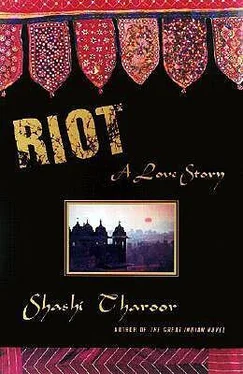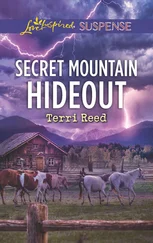You don’t understand. None of you do. But I am not surprised. India is a large and complex country, Mr. Diggs, with our contradictions, paradoxes, inconsistencies all ours. How can you foreigners be expected to understand it? Where else do you have our mixture of ethnicities and castes, our profusion of mutually incomprehensible languages, our varieties of geography and climate, our diversity of religions and cultural practices, our clamor of political parties, our ranges of economic development? How do you understand a country whose population is more than fifty percent illiterate but which has produced the world’s largest pool of trained scientists and engineers? How do you cover the poverty and squalor of a land that led a Mughal emperor to declaim, “If on earth there be paradise of bliss, it is this, it is this, it is this”? Everything you write as the truth, I can show you the opposite is also true. You come from a country, Mr. Diggs, where everything is black and white, there are good guys and bad guys, cowboys and red Indians. You can only understand India on your own terms, and you do not understand that your terms do not apply here.
I have not finished. Don’t protest. I know that you are not merely writing from your preconceptions — if that is all you did, your editors would fire you, would they not? So you embellish your prejudices by talking to Indians. Not usually Indians like myself, so I pay tribute to you, Mr. Diggs, for having taken the trouble to seek me out. No, you talk to Indians like yourselves — English-educated Indians, people who would not know how to tie a dhoti and are proud they do not eat with their hands. People like the district administrator Lakshman whom you will no doubt go to see. The very people who are anxious to explain their India to you are the ones you ought to mistrust, Mr. Diggs. Because they are too much like you to be of any use. They think they are modern, sophisticated, cosmopolitan, secular. They heap contempt on “Hindu fanatics,” laugh at our faith and beliefs, sneer at our traditions. They are embarrassed by the real India, because they are desperately anxious to belong to the world. Your world. And you turn to them for insight and advice about my country?
All you get from the Indians you talk to is the view from New Delhi — even here in Zalilgarh. You foreign correspondents do not realize that New Delhi is not India. At least, not the New Delhi you see and hear, at your diplomatic receptions or businessmen’s cocktail parties. This is India, Mr. Diggs. I am Indian. Listen to me.
letter from Priscilla Hart to Cindy Valeriani
September 3, 1989
Cin, my dear Cin, I don’t know what to do. I went back to him with everything still unresolved, because I couldn’t bear not to. I went to the Kotli again. And I held him, and he hugged me, and we made love. Not just as usual. Something happened that day that I don’t really want to write about, but it made me realize how much I love him, how much I want to give myself to him, how much I’m sure he is the right man for me. I want to spend the rest of my life with him, Cin, and it’s driving me crazy. I wanted to talk about my feelings afterwards but somehow the words didn’t come and he didn’t want to say anything, didn’t really want me to speak either. He just held me so close against his chest that I couldn’t move my lips even if I wanted to.
So I don’t really know where I stand with him, whether I should be planning for a future with Lucky or packing for my scheduled return to NY just over a month from now. Or both. God, Cin, I need your advice.
And there’s something else about which I don’t know what to do. Cindy, there’s been another upsetting development in the Fatima Bi business I wrote to you about. Ali, the husband, came back, found out what she’d done, and beat the hell out of her. Hardly surprising. He also came charging down to the Center looking for Kadambari and me. Kadambari wasn’t in — she was out on her rounds — and I had to bear the brunt. He was murderously angry, eyes bloodshot and red and practically popping out of their sockets, and when he advanced toward me screaming “I told you to leave her alone!” a couple of the men in the office had to physically restrain him. “I’ll kill the foreign whore!” he shouted as he was dragged out, flailing his fists in my direction. Poor Mr. Shankar Das told me not to worry and asked me if he should call the police. I told him not to. I couldn’t help thinking of poor Fatima Bi and the additional misery she’d suffer if her husband got pulled in by the police because of this. After all, I’d encouraged her to go to the clinic. I know I did the right thing. And I don’t seriously believe that, once he’s calmed down, Ali will try to do me any harm.
But the whole situation is getting me down. The Center sometimes seems to me a rather ineffective place, and though I write papers for Mr. Shankar Das that he seems to like a lot, I frankly wonder how much difference it makes. My fieldwork is largely done, but it involves doing the rounds with Kadambari, and I’m not real thrilled about that. Kadambari is a peculiar woman, and I’m not enjoying doing my field research in her company. Ever since the Fatima business she’s sort of kept her distance from me, as if to signal to everyone that it was all my fault and she wanted no part of it. Well, telling women about their reproductive rights is her job, for Christ’s sake!
And then Kadambari’s made some strange comments in that sidelong way she has that really gets under my skin. She tells me I’ve been spotted cycling to the Kotli and that I should be careful, because no one goes there. I ask her why not and she says it’s because people believe the place is haunted. I tell her I don’t believe in ghosts and she replies, “It’s haunted, but not only by ghosts.” What’s she getting at? I said I’ve been there a few times and I’ve never seen anyone else there. She says, well, everyone knows the DM — that’s Lucky — likes to go there a lot, and when his car is outside the gate no one dares to venture in, but when he’s not there, all sorts of “badmashes” — bad types — use the place. I glower at her and say that whenever I’ve been there I’ve never seen the DM either. Kadambari gives me an arch look, can you imagine, and flounces off, muttering, “Don’t say I didn’t warn you.”
Cindy, one thing you’ve got to promise me, OK? These letters are between you and me. DON’T show them to anyone else, not even Matt. And don’t breathe a word about them to my parents if you ever run into them — not that you would, of course. Tell them, I mean. It would just worry them, and it’s not as if anyone in America can do anything about all of this anyway. My letters are just a way of sharing everything in my life here with the one person who understands. Assume they’re like the phone calls I’d have made to you if I was still in NY, OK? Tear them up when you’ve read them, as if you’ve just put the phone down.
Anyway, what does Kadambari think she’s warned me about? Lucky? Well, in a small town like this I guess I should have realized that people would begin talking sooner or later. It can’t do Lucky much good to be the subject of gossip among the likes of Kadambari. And I don’t know how seriously to take her warning to be careful. Does she mean the Kotli’s not safe or that I’ll be found out? I don’t want to ask Lucky because I’m afraid it’ll worry him. And because I don’t want to do anything that’ll jeopardize our meeting there. It’s the only place I love in Zalilgarh, and I’d rather die than give it up….
transcript of Randy Diggs interview with
District Magistrate V. Lakshman (Part 3)
October 13, 1989
Читать дальше












